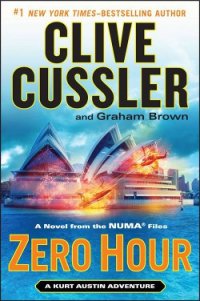Restless - Boyd William (книги онлайн TXT) 📗
'Stephenson wants to meet me?' she repeated, dumbly. It seemed inconceivable. William Stephenson was BSC: it was his party, every nut and bolt – every cracker, cookie and slice of cake.
'You're our shining star,' he said insincerely and looked at his watch. 'Let me sort out this mess. I'll pick you up outside your apartment at ten.' He smiled. 'And don't tell Sylvia. All right?'
'See you at ten,' she said. 'And then, afterwards, maybe we can…'
'I'll think of something. Listen, you'd better go before one of these cops takes your name.'
He turned and walked away towards the policemen.
As Eva rode down to the street in the elevator she began to calculate. She checked her watch: 8.45. Romer would be waiting for her outside her apartment at ten. When she didn't show after five minutes he would know she was flying. She had just over an hour to disappear.
She decided she had no time to go back to the apartment – everything had to be left behind in the interests of immediate safety and flight. As she waited for a subway she checked what she had in her handbag: her Eve Dalton passport, some thirty dollars, a packet of cigarettes, lipstick, a compact. Was this enough, she wondered, smiling ruefully to herself, to start a new life?
On the train to Brooklyn she began to go back over that last encounter with Romer and slowly, methodically, examine all its implications. Why was she so suddenly, immediately convinced that Romer was somehow behind the events in Las Cruces and Morris Devereux's death? Maybe she was wrong?… Maybe it was Angus Woolf. Maybe it had been Morris playing an elaborate game of entrapment with her, acting the innocent party? But she knew Morris hadn't committed suicide: you don't make a vitally important appointment and then decide to cancel it by ending your life. Romer had given nothing away, though, she had to admit – so why this unshakeable certainty? Why did she feel she had to fly now, at once, as though her life depended on it? The commonplace phrase disturbed her, made her come out in goose bumps – her life did depend on it, she realised. For Morris it was the fact that she hadn't given the map to Raul that was the key indication, the essential clue. Why hadn't she given the map to Raul? Because she had inspected it and found it wanting. Who told her to check the merchandise? No one.
She heard Romer's voice, her lover's voice, as if he were standing beside her: 'Never underestimate the scrupulous resourcefulness of our Miss Dalton, eh?'
That was what had clinched it for her. That was what had made her understand what Morris had seen. She couldn't see the whole picture, how the game was meant to end, but she had realised, standing talking to Romer outside poor dead Morris's flat, that Romer had sent her on the Las Cruces mission, knowing one thing for sure: he knew – absolutely, confidently – that she would never hand over merchandise without examining it. He knew her, he knew completely what she would do in that situation. She felt a blush of shame glow on her face as she came to terms with the fact that she could be so easily read, so perfectly programmed and positioned. But why feel shame, she said to herself, with a little flare of anger? Romer knew she would never be an automatic, press-all-the-buttons, courier – that was why he had volunteered her for the job. It had been the same at Prenslo – she used her initiative, took spontaneous decisions, made hard judgements. And the same with Mason Harding. Her head began to reel: it was as if he had been testing her, evaluating how she behaved in these circumstances. She suddenly thought: had Romer put the FBI crows on to her as well, knowing, confident, that she would lose them – and thereby rouse suspicions? She began to feel outmanoeuvred, as if she were playing chess with a grandmaster who was always working ten, twenty, thirty moves ahead. But why would Lucas Romer want her dead?
In the Brooklyn apartment she went straight to the bathroom and took down the medicine cabinet from the wall. She pulled away the loose brick behind it and removed her Margery Allerdice passport and a small wad of dollar bills: she had nearly 300 dollars saved. As she rehung the cabinet she paused.
'No, Eva,' she said out loud.
She had to remember this – she could never forget this – she was dealing with Lucas Romer, a man who knew her all too well, as well as anybody had ever known her in her life, it seemed. She sat down, almost giddy with the thought that had just come to her: Romer wanted her to fly, he was expecting her to fly – it would be much easier to deal with her if she was on the run, far from home. So think, she urged herself – double-think, triple-think. Put yourself in Romer's mind – assess his knowledge and opinion of you, Eva Delectorskaya – and then surprise him.
She reasoned to herself: Romer would not have fallen for her heartfelt invitation to spend the night together, not for one second. He would know that she suspected him; he would know that she didn't believe Morris had killed himself. He probably knew, also, that it was over the second she appeared in the corridor outside Morris's apartment and therefore his suggestion to meet at ten was almost an invitation for her to fly. She was suddenly aware that she didn't have a head start: not an hour, not half an hour – she had no time at all.
She left the apartment immediately, wondering if Romer would be aware of its address. She thought not, and as she walked down the street she confirmed that no one was following her. She slipped her Eve Dalton passport through a grating in the gutter and heard it splash gently in some water below. She was now Margery Allerdice – someone Romer knew, of course; he would know all the aliases he provided for his agents – Margery Allerdice would only take her so far.
But take her where? she thought, as she hurried on to the subway station. She had two clear simple choices: south to Mexico or north to Canada. As she deliberated she found herself wondering what Romer would expect her to do. She had just come from the Mexican border – would he assume she would head back, or go north – the other way? She saw a cab cruising by and hailed it. Take me to Penn Station, she said – south, then, to Mexico, the best decision, it made sense – she knew how and where to cross the border.
On the cab journey she continued to ponder the ramifications of this plan. Train – was that the right thing to do? He wouldn't expect her to take a train: too obvious, too easy to check, easier to be trapped on a train – no, Romer would think bus or car, so taking a train might actually buy her some time. She kept thinking about Romer and the way his mind worked as she crossed the East River, heading for the lucent towers of Manhattan, aware that only this would ensure her survival. Eva Delectorskaya versus Lucas Romer. It wouldn't be easy – more to the point, he had trained her, everything she knew came from Romer, handed down in one way or another. So the thing to do was turn his own methods, his own little tricks and specialities, against him… But she just needed a little time, she realised, weakly, just a day or two's start on him, time enough to cover her tracks, make it harder for him… She huddled down in the back of the cab: it was a chilly November night – some Mexican sun would be nice, she thought, some Brazilian sun. Then she realised she had to go north. She reached over and tapped the taxi driver on the shoulder.
At Grand Central she bought a ticket for Buffalo – twenty-three dollars – and handed over two twenties. The clerk counted out her change and gave her the ticket. She said thank you and walked away, waiting until he had served two other customers, before she came back to the booth, interrupting the next transaction and said, 'This is change for forty. I gave you a fifty.'



